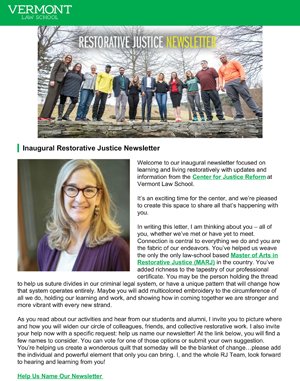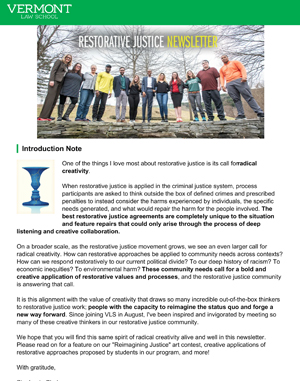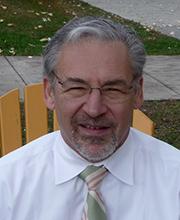Biography
Professor Meyer served as assistant professor of law and director of legal writing at the University of Connecticut School of Law from 1988 to 1991 and was awarded a citation for teaching excellence. After serving as an adjunct professor at the City University of New York School of Law from 1991 to 1992, he rejoined the VLS faculty in 1992. He has served as program chair of the Association of American Law Schools' Section on Legal Writing, Reasoning, and Research and as chair and program chair of the Section of Law and Humanities. He has also served as the Vermont Law School delegate to the AALS House of Delegates. He served as associate editor of Legal Studies Forum from 1996 to 1998.
Publications
Books
With Anthony G. Amsterdam, Making Our Clients' Stories Heard: A Guide to Narrative Strategies For Appellate and Postconviction Lawyers, (ADMINISTRATIVE OFFICE OF THE U.S. COURTS PUB. 2009.)
Author of Cruising for Burgers, a novel awarded The Mary Roberts Rinehart Foundation Grant in Fiction, 1977.
Chapters
Articles
Making the Narrative Move: Observations Based Upon Reading Gerry Spence's Closing Argument in The Estate of Karen Silkwood v. Kerr McGee, Inc., 9 Clinical Law Rev. 229 (2002).
Confessions of Legal Writing Teacher, 46 J. Legal Educ. 27 (1996).
Other
Associate editor, Legal Studies Forum, since 1996, and guest editor, "The New Legal Writing Scholarship," 1996.
Presentations
"Law, Class, and Film," Critical Legal Studies Network Conference, Georgetown Law Center and American University School of Law, 1995.
Awards & Accomplishments
Awards, Honors or Grants
Service Work
Officer, Law and Humanities Section, Association of American Law Schools, 1993–94.
Program Chair, Legal Writing Section, AALS, 2006-2007.
School representative, Association of American Law School House of Delegates, 1993–95.
Program Chair, Section of Law and Humanities, Association of American Law Schools, 2004–05.
Affiliations
Chair, Section of Law and the Humanities, AALS, 2005-2006 (and Executive Committee member as Former Chair).
Chair, 1996–97, and Member, 1995–96, program committee, legal writing and reasoning section, Association of American Law Schools, 1995–96.
- Professor and Director of Legal Writing Program at Vermont Law School, since 1992.
- Taught legal writing and lawyering skills at CUNY School of Law (1991–92), University of Connecticut School of Law (1988–91), New York University School of Law (1985–88), and University of Bridgeport School of Law (1982–84).



















